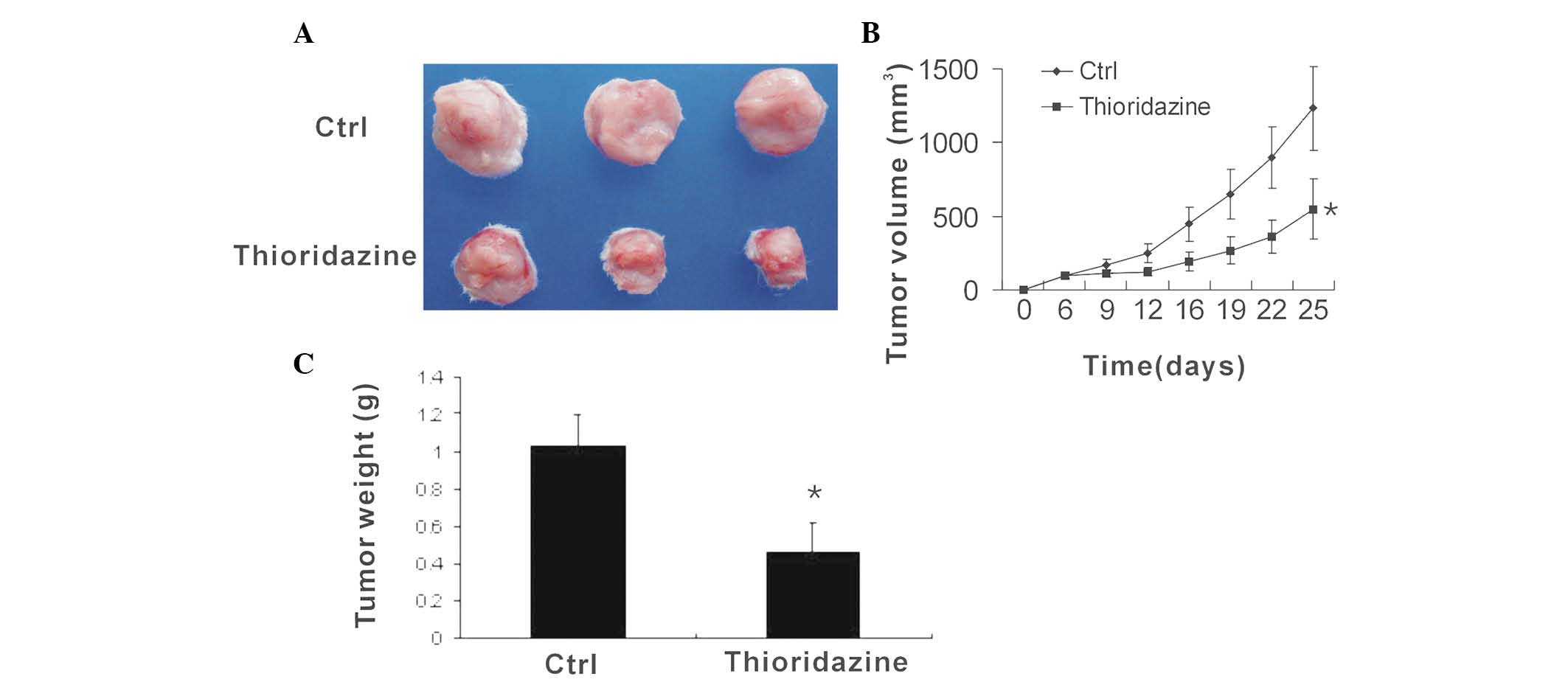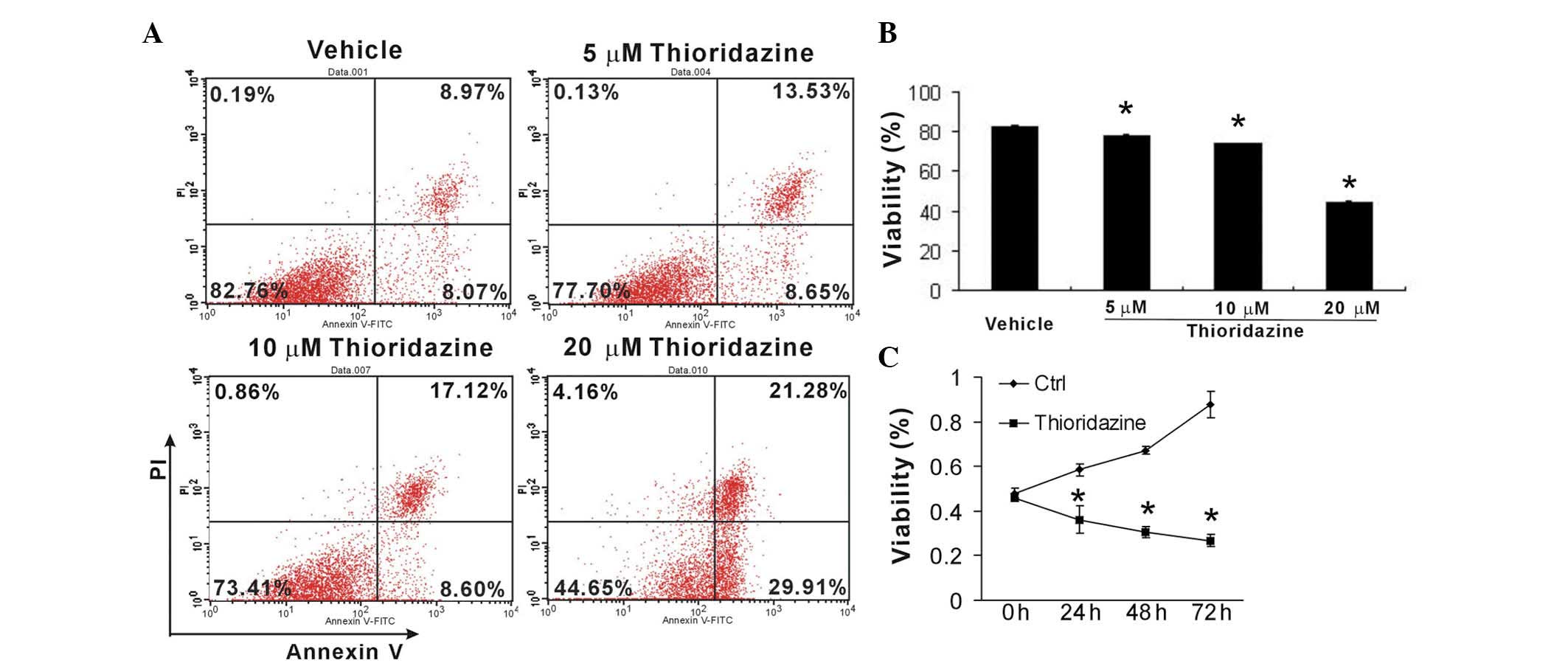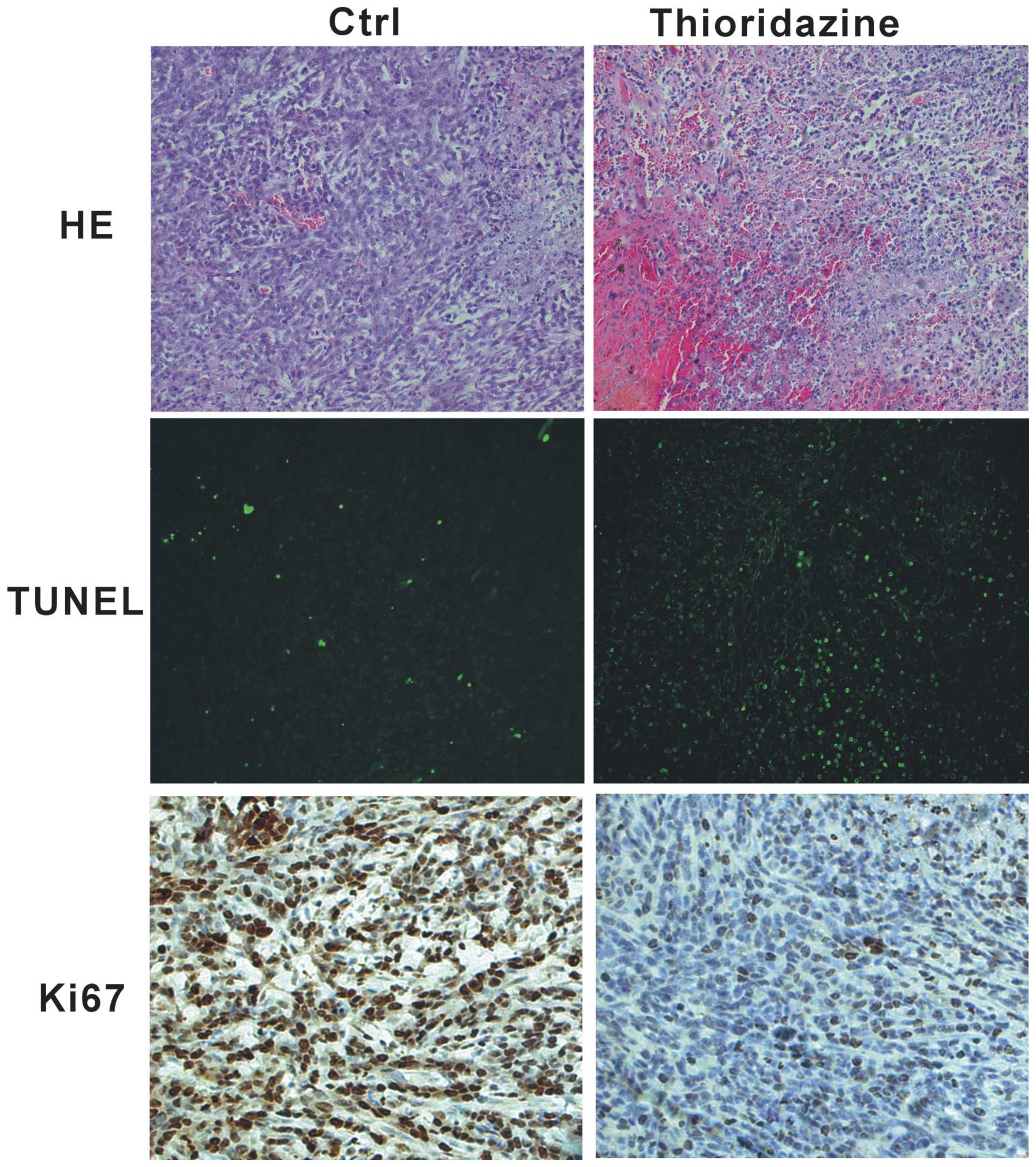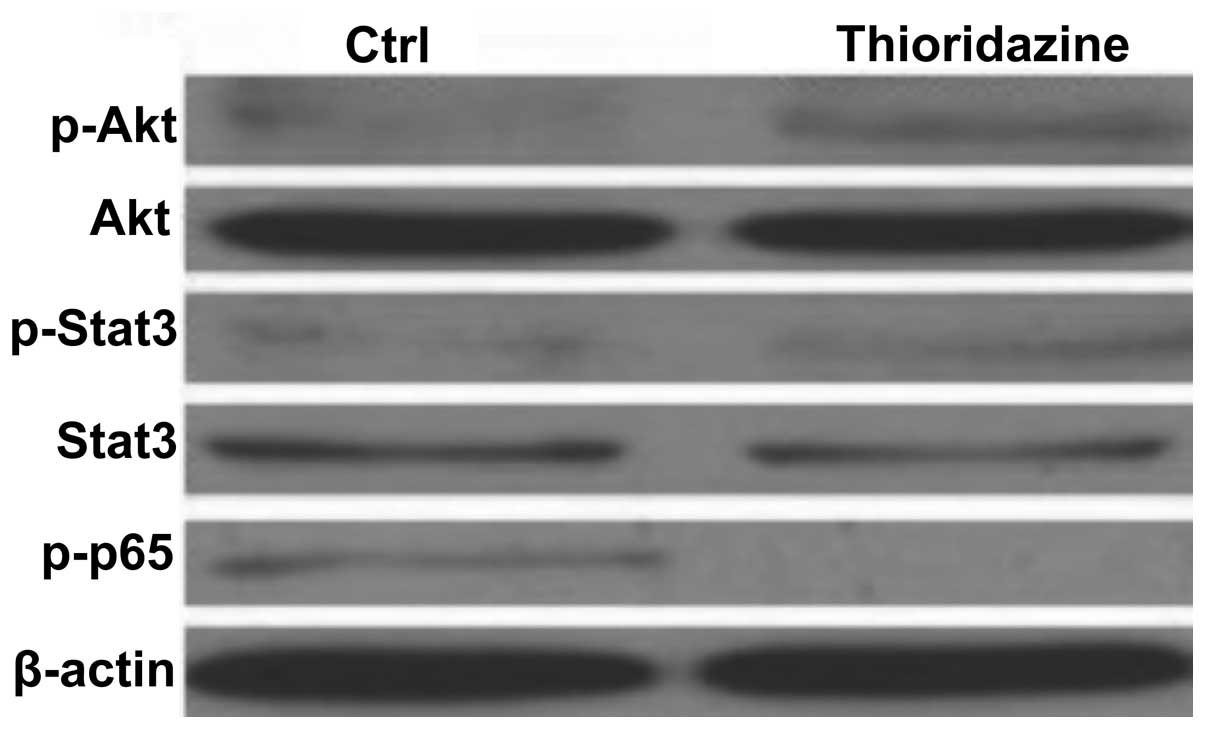|
1
|
Schuller HM, Al-Wadei H, Ullah MF and
Plummer HK III: Regulation of pancreatic cancer by
neuropsychological stress responses: a novel target for
intervention. Carcinogenesis. 33:191–196. 2012. View Article : Google Scholar :
|
|
2
|
Thaker PH, Han LY, Kamat AA, et al:
Chronic stress promotes tumor growth and angiogenesis in a mouse
model of ovarian carcinoma. Nat Med. 12:939–944. 2006. View Article : Google Scholar : PubMed/NCBI
|
|
3
|
Melhem-Bertrandt A, Chavez-MacGregor M,
Lei X, et al: Beta-blocker use is associated with improved
relapse-free survival in patients with triple-negative breast
cancer. J Clin Oncol. 29:2645–2652. 2011. View Article : Google Scholar : PubMed/NCBI
|
|
4
|
Lemeshow S, Sørensen HT, Phillips G, et
al: β-blockers and survival among Danish patients with malignant
melanoma: a population-based cohort study. Cancer Epidemiol
Biomarkers Prev. 20:2273–2279. 2011. View Article : Google Scholar : PubMed/NCBI
|
|
5
|
Grytli HH, Fagerland MW, Fosså SD, et al:
Use of β-blockers is associated with prostate cancer-specific
survival in prostate cancer patients on androgen deprivation
therapy. Prostate. 73:250–260. 2013. View Article : Google Scholar
|
|
6
|
Magnon C, Hall SJ, Lin J, et al: Autonomic
nerve development contributes to prostate cancer progression.
Science. 341:12363612013. View Article : Google Scholar : PubMed/NCBI
|
|
7
|
Sarkar DK, Zhang C, Murugan S, et al:
Transplantation of β-endorphin neurons into the hypothalamus
promotes immune function and restricts the growth and metastasis of
mammary carcinoma. Cancer Res. 71:6282–6291. 2011. View Article : Google Scholar : PubMed/NCBI
|
|
8
|
Yamazaki S, Ema H, Karlsson G, et al:
Nonmyelinating Schwann cells maintain hematopoietic stem cell
hibernation in the bone marrow niche. Cell. 147:1146–1158. 2011.
View Article : Google Scholar : PubMed/NCBI
|
|
9
|
Lucas D, Scheiermann C, Chow A, et al:
Chemotherapy-induced bone marrow nerve injury impairs hematopoietic
regeneration. Nat Med. 19:695–703. 2013. View Article : Google Scholar : PubMed/NCBI
|
|
10
|
Sibley DR and Monsma FJ Jr: Molecular
biology of dopamine receptors. Trends Pharmacol Sci. 13:61–69.
1992. View Article : Google Scholar : PubMed/NCBI
|
|
11
|
González H, Contreras F, Prado C, et al:
Dopamine receptor D3 expressed on CD4+ T cells favors
neurodegeneration of dopaminergic neurons during Parkinson's
Disease. J Immunol. 190:5048–5056. 2013. View Article : Google Scholar
|
|
12
|
Pacheco R, Prado CE, Barrientos MJ and
Bernales S: Role of dopamine in the physiology of T-cells and
dendritic cells. J Neuroimmunol. 216:8–19. 2009. View Article : Google Scholar : PubMed/NCBI
|
|
13
|
Saha B, Mondal AC, Basu S and Dasgupta PS:
Circulating dopamine level, in lung carcinoma patients, inhibits
proliferation and cytotoxicity of CD4+ and CD8+ T cells by D1
dopamine receptors: an in vitro analysis. Int Immunopharmacol.
1:1363–1374. 2001. View Article : Google Scholar : PubMed/NCBI
|
|
14
|
Sachlos E, Risueño RM, Laronde S, et al:
Identification of drugs including a dopamine receptor antagonist
that selectively target cancer stem cells. Cell. 149:1284–1297.
2012. View Article : Google Scholar : PubMed/NCBI
|
|
15
|
Seeman P and Lee T: Antipsychotic drugs:
direct correlation between clinical potency and presynaptic action
on dopamine neurons. Science. 188:1217–1219. 1975. View Article : Google Scholar : PubMed/NCBI
|
|
16
|
Ly KL, Chidgey J, Addington-Hall J and
Hotopf M: Depression in palliative care: a systematic review. Part
2. Treatment. Palliat Med. 16:279–284. 2002. View Article : Google Scholar : PubMed/NCBI
|
|
17
|
Zhukovsky DS: Fever and sweats in the
patient with advanced cancer. Hematol Oncol Clin North Am.
16:579–588. 2002. View Article : Google Scholar : PubMed/NCBI
|
|
18
|
Rho SB, Kim BR and Kang S: A gene
signature-based approach identifies thioridazine as an inhibitor of
phosphatidylinositol-3′-kinase (PI3K)/AKT pathway in ovarian cancer
cells. Gynecol Oncol. 120:121–127. 2011. View Article : Google Scholar
|
|
19
|
Engelman JA: Targeting PI3K signalling in
cancer: opportunities, challenges and limitations. Nat Rev Cancer.
9:550–562. 2009. View
Article : Google Scholar : PubMed/NCBI
|
|
20
|
Osaki M, Oshimura M and Ito H: PI3K-Akt
pathway: its functions and alterations in human cancer. Apoptosis.
9:667–676. 2004. View Article : Google Scholar : PubMed/NCBI
|
|
21
|
Corvinus FM, Orth C, Moriggl R, et al:
Persistent STAT3 activation in colon growth. Neoplasia. 7:545–555.
2005. View Article : Google Scholar : PubMed/NCBI
|
|
22
|
Sherry MM, Reeves A, Wu JK and Cochran BH:
STAT3 is required for proliferation and maintenance of multipotency
in glioblastoma stem cells. Stem Cells. 27:2383–2392. 2009.
View Article : Google Scholar : PubMed/NCBI
|
|
23
|
Bassères DS and Baldwin AS: Nuclear
factor-kappaB and inhibitor of kappaB kinase pathways in oncogenic
initiation and progression. Oncogene. 25:6817–6830. 2006.
View Article : Google Scholar : PubMed/NCBI
|
|
24
|
Lam LT, Davis RE, Pierce J, et al: Small
molecule inhibitors of IkappaB kinase are selectively toxic for
subgroups of diffuse large B-cell lymphoma defined by gene
expression profiling. Clin Cancer Res. 11:28–40. 2005.PubMed/NCBI
|
|
25
|
Weis SM and Cheresh DA: Tumor
angiogenesis: molecular pathways and therapeutic targets. Nat Med.
17:1359–1370. 2011. View
Article : Google Scholar : PubMed/NCBI
|
|
26
|
Byun HJ, Lee JH, Kim BR, et al:
Anti-angiogenic effects of thioridazine involving the FAK-mTOR
pathway. Microvasc Res. 84:227–234. 2012. View Article : Google Scholar : PubMed/NCBI
|
|
27
|
Lechertier T and Hodivala-Dilke K: Focal
adhesion kinase and tumour angiogenesis. J Pathol. 226:404–412.
2012. View Article : Google Scholar
|
|
28
|
Ponti D, Costa A, Zaffaroni N, et al:
Isolation and in vitro propagation of tumorigenic breast cancer
cells with stem/progenitor cell properties. Cancer Res.
65:5506–5511. 2005. View Article : Google Scholar : PubMed/NCBI
|



















